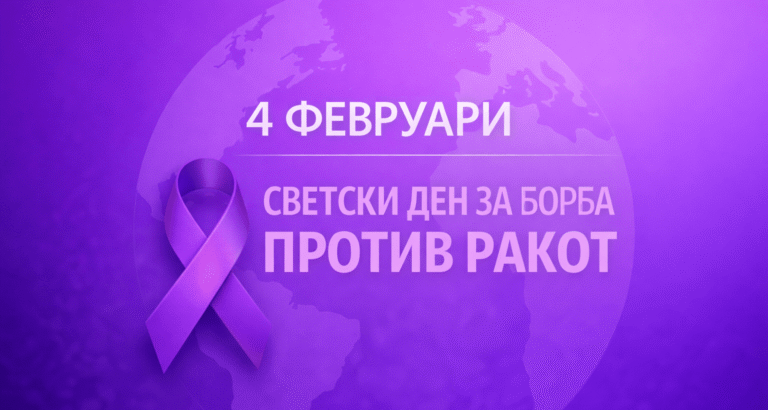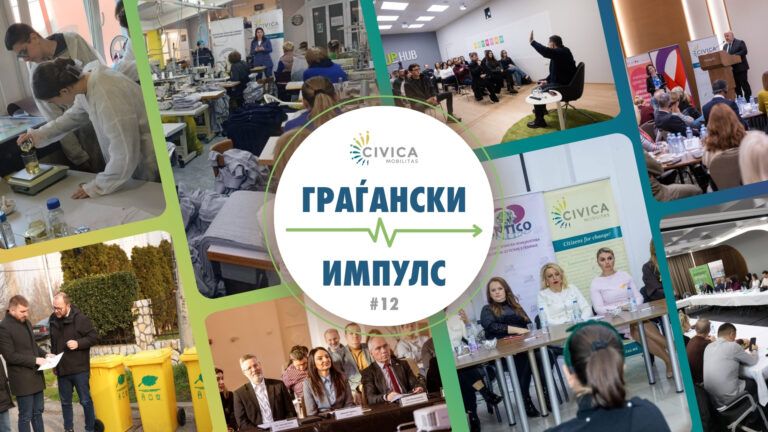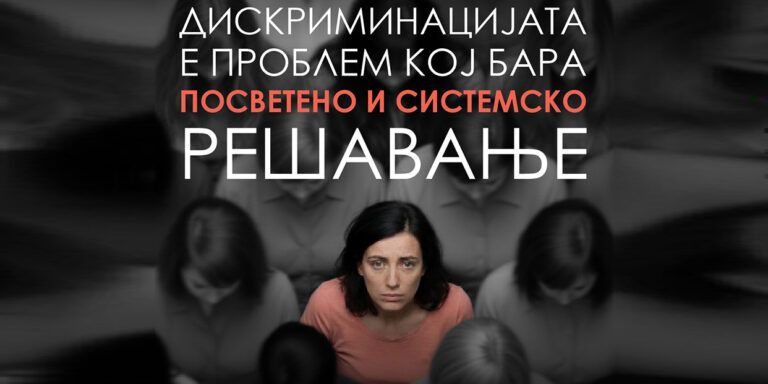All Included, Inclusion for All!
By paraphrasing the message of Polio Plus, “Nothing for us, without us”, Petrus Theunisz, the international team leader of Civica Mobilitas, opened the regional forum for Eastern and Southeastern region which was organized under the motto “All Included, Inclusion for All!” in the Multimedia Center Channel 77, in Stip on 7 October 2016.

Many representatives of civil society organizations shared their experience in the area of social inclusion and social entrepreneurship during the first panel.
Aleksandar Lazarov from “Planetum” shared their experience of establishing a network of informal collectors of plastic waste. “We started in 2005-2006. Very quickly, we managed to employ five persons. The income we made was more than enough for these people to have a net salary of 25.000 denars. Unfortunately, this activity of ours was attacked by some party and political confrontations, which is the reason why we haven’t worked for two years. The people are here, we should give them a fair chance to help them be removed from the margins of society”.

But, is the employment sufficient for us to be able to talk about social inclusion? According to Beti Tolevska from КHAM from Delcevo, it is only one segment. “In the initial attempts to employ Roma people we faced business prejudices”, she said. “We don’t want to employ Roma” – said the businessmen to us. But, we did not give up, we worked with our constituencies and with the business sector. We have broken down the prejudices, and now we should work on improvement of self-confidence of the Roma women, and to convince them that they are valuable”, Tolevska said. With the employment of Roma women, it is necessary to provide kindergartens for their children, they should be accepted by other children, and the women should be accepted by the people they would work with. According to the speaker, it is a step closer to social inclusion.
According to Sokrat Mancev from Izbor from Strumica, the opening of new job positions for the stigmatized persons is the greatest social inclusion. “Revolutionary social policy changes should be made in the state for some movements to happen, for example we should have more competences. The state implements the social policy of social support, with very small results, which will continue to be small”, Mancev said.

Dimitar Apasiev from the University “Goce Delcev” from Stip talked about social policy, which, according to him, is reduced to clientelism. According to Apasiev, the employment does not remove the employed persons from the vicious circle of poverty. “In our country, the happiness and life satisfaction index drops at the age of 25, and does not grow to the end of life”, he says.
Zermena Bozinovska from the Association for Research, Communications, and Development ”Public” talked about their example related to the “Face to Face” magazine, which has been working on the basis of social entrepreneurship principle for already four years. “Work is the most appropriate way of social inclusion”, Bozinovska said, explaining the sale of the magazine carried out by marginalized persons. “The mentoring work with them impacts their social behavior”, she said. Bozinovska proudly said that they have employed one of the salespersons recently.
Prevention of migrations and reduction of unemployment were the two topics discussed in the working groups. The survey conducted by Мedia Plus and dedicated to migration of youth titled “Return Ticket” was presented. Most of the respondents think that the measures undertaken by the state do not fit the situation in the country (37%) or are not sufficient (29%). The reasons why the young people emigrate are mostly the low wages, insufficient for survival (71%) and lack of possibility for employment (19%). The survey has also shown that the young people do not leave only for economic reasons.

Zlatko Nikolovski, from the organization “New Contact”, thinks that the reason for emigration of young people is the low level of employment and poor conditions. “The migration policy should be changed”, he said, and that the civil society organizations working with migrations should work together. There is a need for inclusion and reintegration of the repatriates. Macedonia will have a serious problem if it does not work on this migration crisis in timely manner, he thinks.
Nevenka Longurova Girova from Foundation for Local Community Development presented the results of the analysis of data about unemployment of women – belonging to the minority ethnic communities from the Eastern region. According to her, usually it is about Roma women, at the age between 25 and 49, who haven’t or have completed only primary education, and most of them have been unemployed for one to three years.
Civica Mobilitas forums provide space for articulation of ideas, but also for a joint planning and preparation of actions. This forum was moderated by Daniela Stojanova from MCIC and Vesna Kolovska from Media Plus.






![Sre]ni praznici(2)](https://civicamobilitas.mk/wp-content/uploads/2025/12/sreni-praznici2-768x432.jpg)
